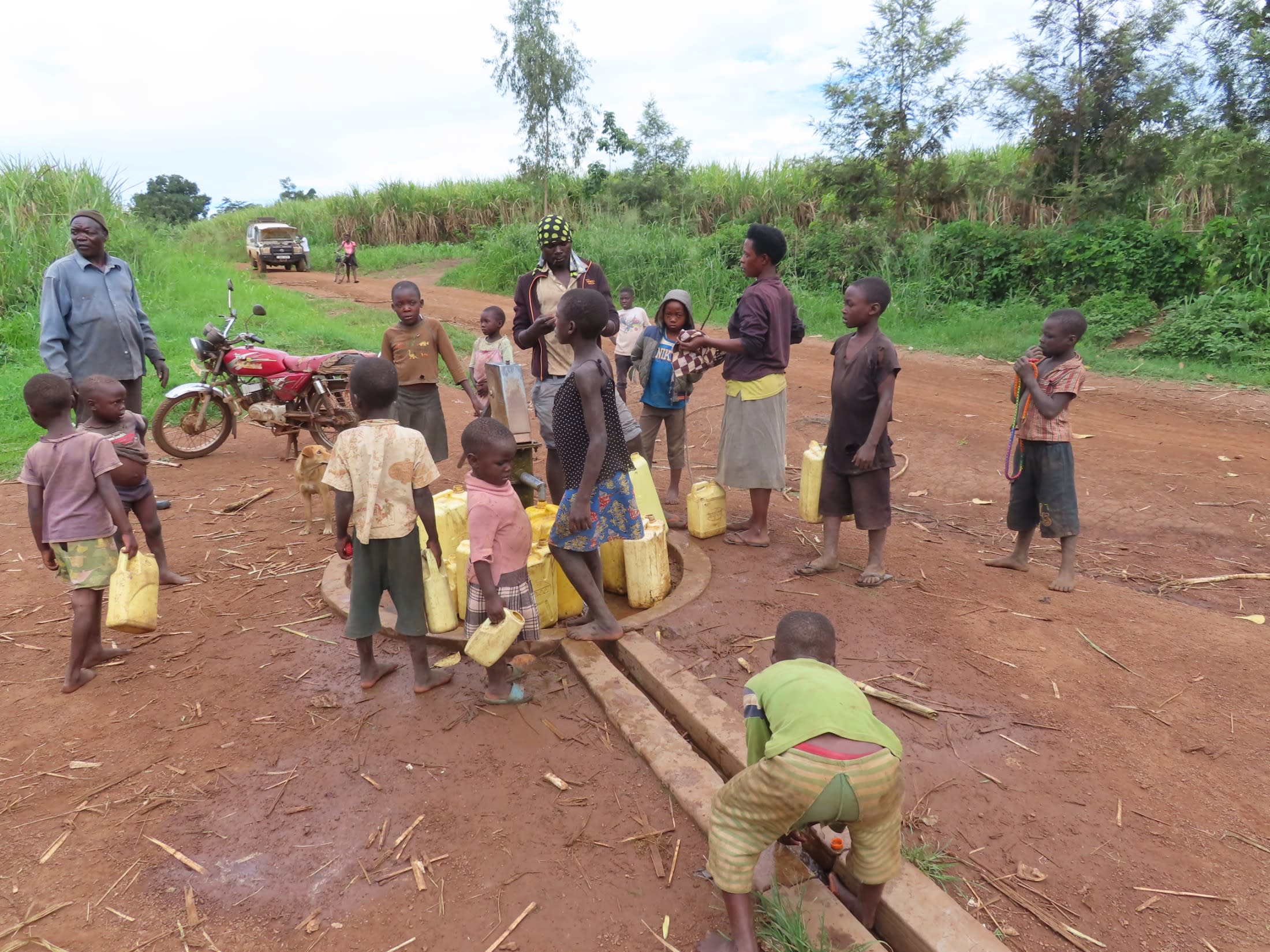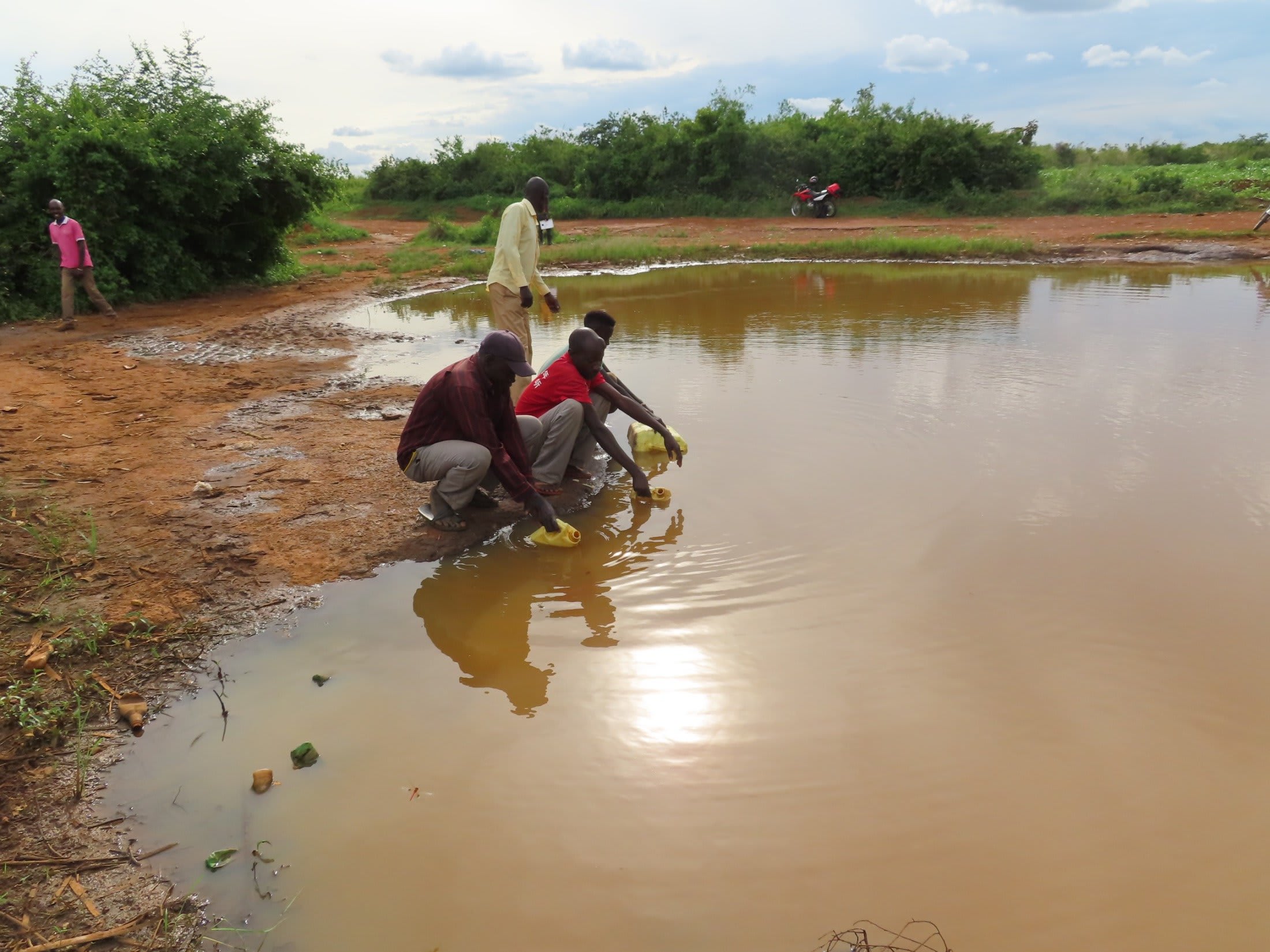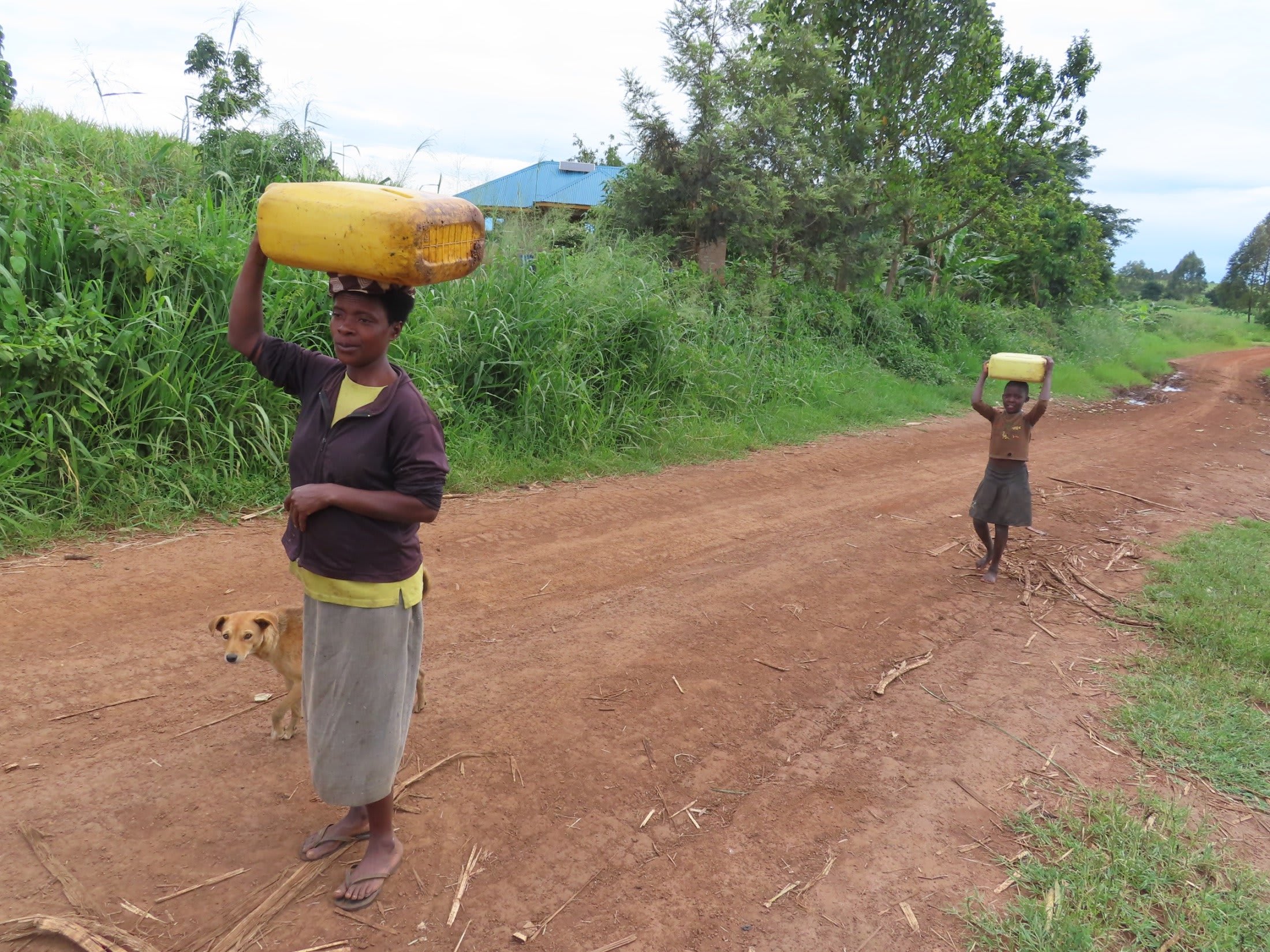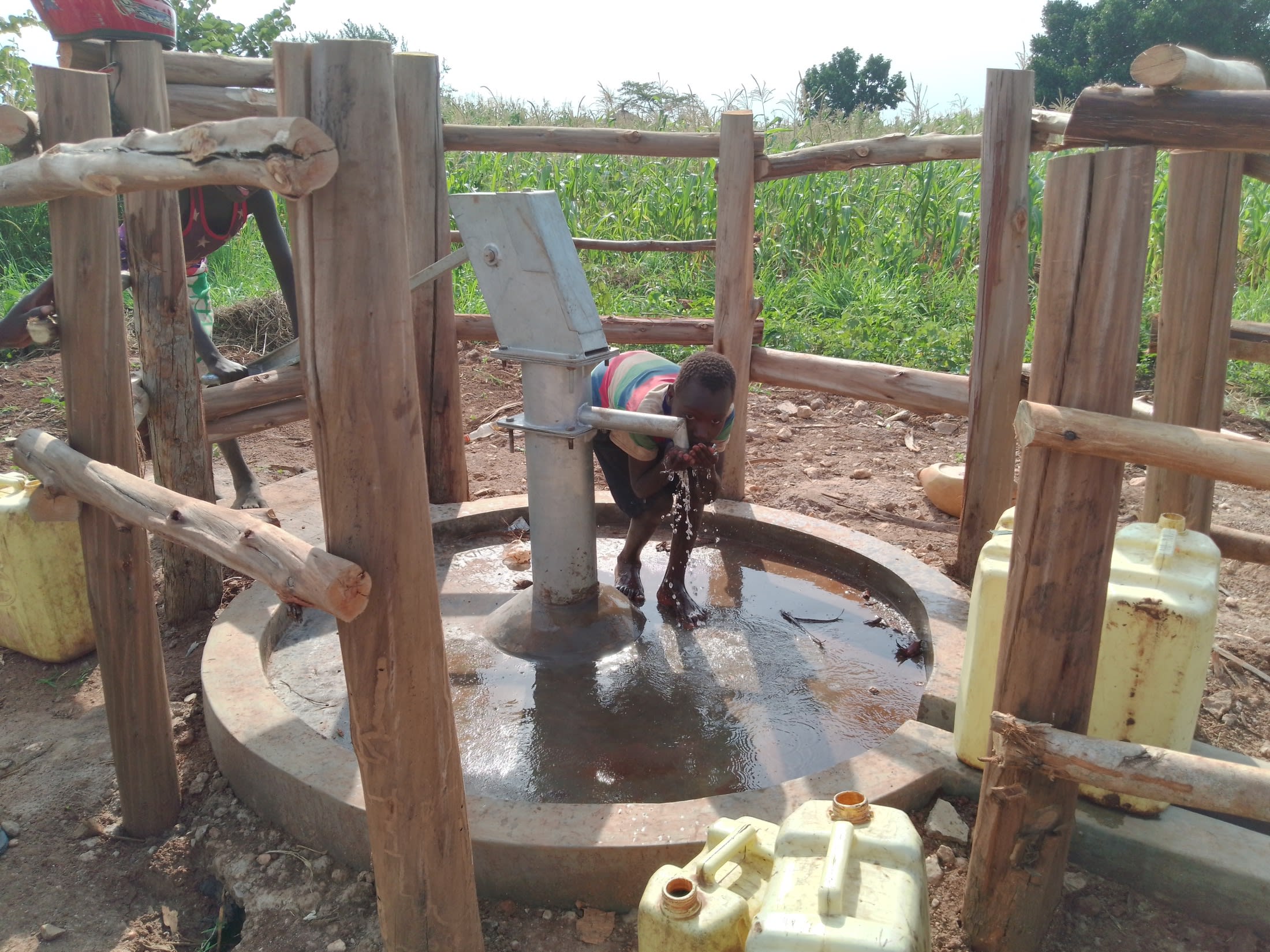This community is one of the newly created villages within Bikonzi Parish. The most common livelihood is farming, and the majority of crops grown are beans, maize, or sugarcane for commercial purposes. A few in the community raise cattle or have small shops. The community lacks many services like safe water, schools (children travel 8km away), and good roads.

Rehabilitation of this water point is critical as it is currently the only functional water point, and a safe water supply must be restored to this community. It is always overcrowded throughout the day since it serves a large number of people. Due to the old, rusted pipes and rods, sometimes in the morning, the water comes out with brownish iron particles, which are not good for people's health. There are frequent breakdowns, and people spend a lot of money on the repairs, making it challenging financially to have it repaired on time. Children and adults suffer from diarrhea, scabies, and other skin diseases due to using the dirty water from the open sources whenever this borehole breaks down.

"I always begin my day with garden work before I begin the search for water since it's far away from my home. One of the boreholes which would help us is currently not functional; therefore, I have to walk a longer distance to collect water or opt for the open-source. I am always forced to leave my garden work early in order to collect water, and this has always compromised my output," said Akamumpa Annet, a mother and farmer.

Here’s what we’re going to do about it:
Rehabilitated Well
We are going to restore water to the broken-down borehole. Since this water point is located at the center of the village and easily accessible by the majority of people, unlike the springs which are located at the far ends of the village, when this borehole is restored to its original status it will provide the community with easy access to clean and safe water. We will remove the old pump, clear out the well, reinstall a new stainless steel pump, and build a new well pad to protect the water.
Training
Training’s main objectives are the use of latrines and observing proper hygiene practices since these goals are inherently connected to the provision of clean water. Open defecation, water storage in unclean containers, and the absence of handwashing are all possible contaminants of a household water supply. Each participating village must achieve Open Defecation Free status (defined by 1 latrine per household) before the pump installation for a shallow hand-dug well.
This social program includes the assignment of 1 Community Development Officer (CDO) to each village. The CDO encourages each household to build an ideal homestead that includes a latrine, handwashing facility, a separate structure for animals, rubbish pit, and drying rack for dishes.
We also implement the Community-Led Total Sanitation (CLTS) approach with each of our village partners. This aims to improve the sanitation and hygiene practices and behaviors of a village. During these sessions, village leaders naturally emerge and push the community to realize that the current practices of individual households – particularly the practice of open defecation – are not only unhealthy but affect the entire village. CLTS facilitates a process in which community members realize the negative consequences of their current water, sanitation, and hygiene behaviors and are inspired to take action. Group interactions are frequent motivators for individual households to build latrines, use the latrines, and demand that other households do the same.
Improved Sanitation
The aim is that all households own an improved latrine. Many households do not use a latrine but use the bush. Due to open defecation, feces are spread all over the village. This leads to waterborne diseases and contamination of groundwater and surface water. Our aim is that the community is able to live a healthy life free of preventable diseases. We endeavor that at the end of our presence in the community, people will have both access to sustainable, clean water and access to sanitation. We have now organized families to form digging groups for latrine construction, and empowered them with tools they will need.

 Borehole Well and Hand Pump
Borehole Well and Hand Pump































